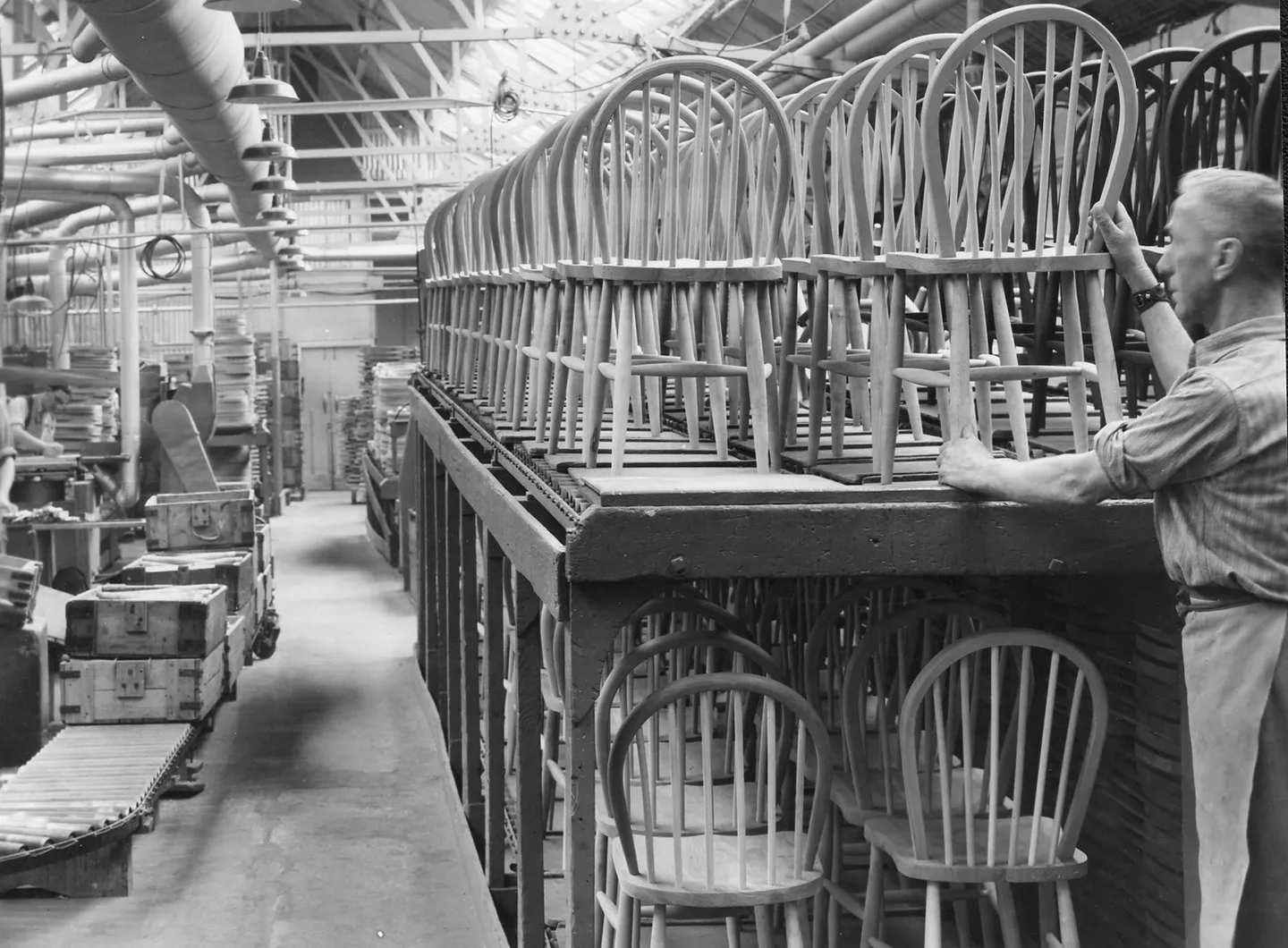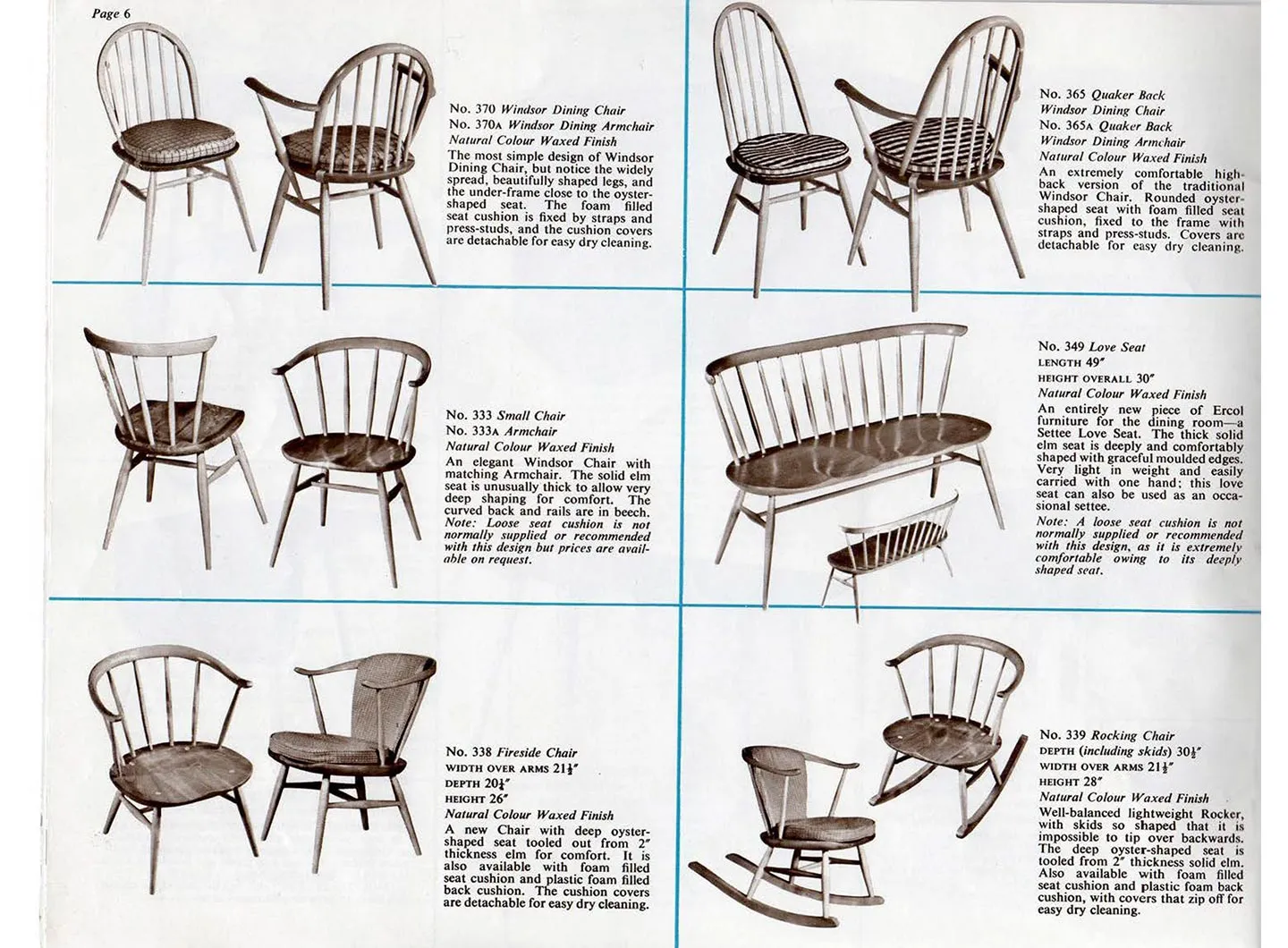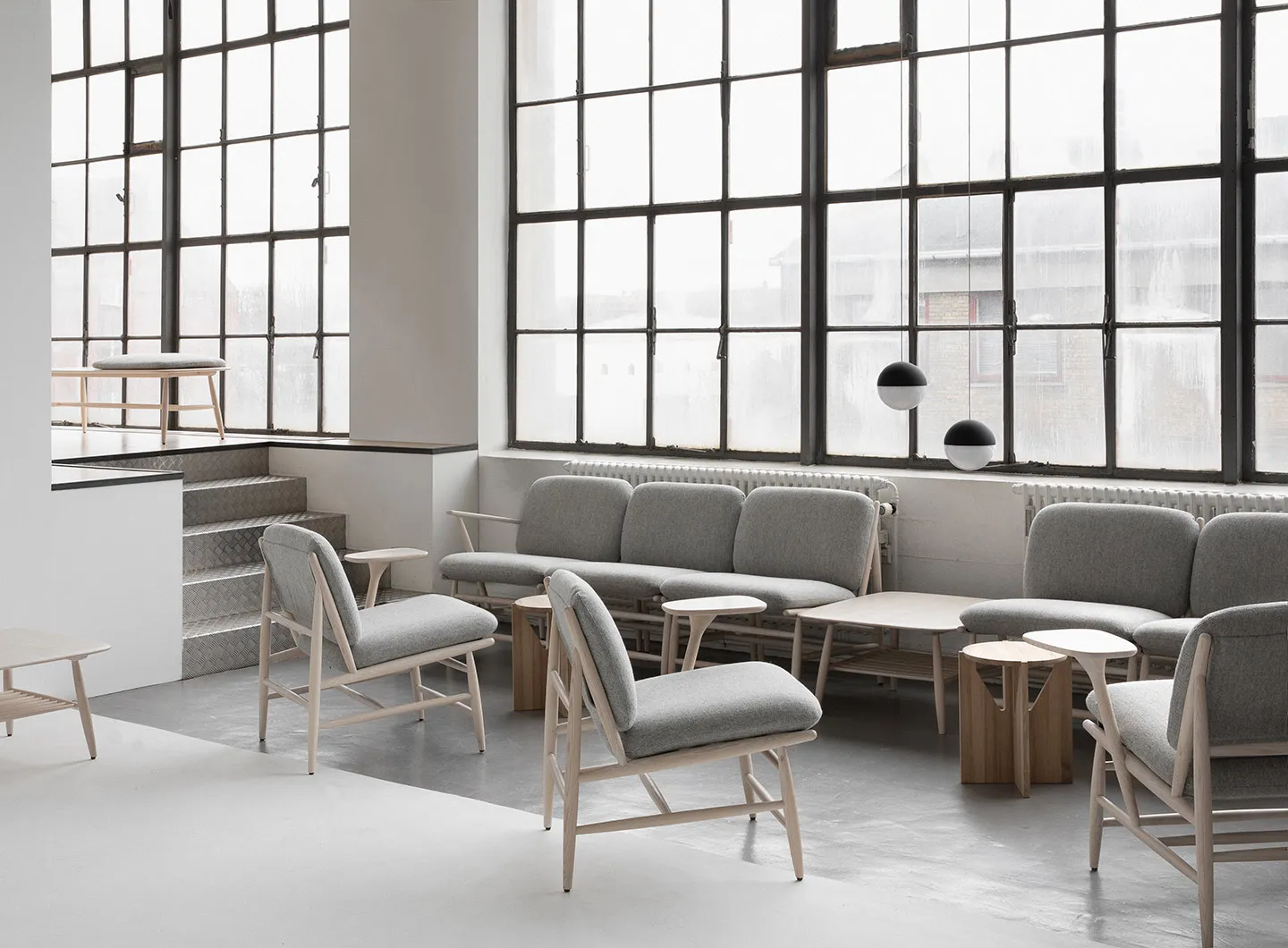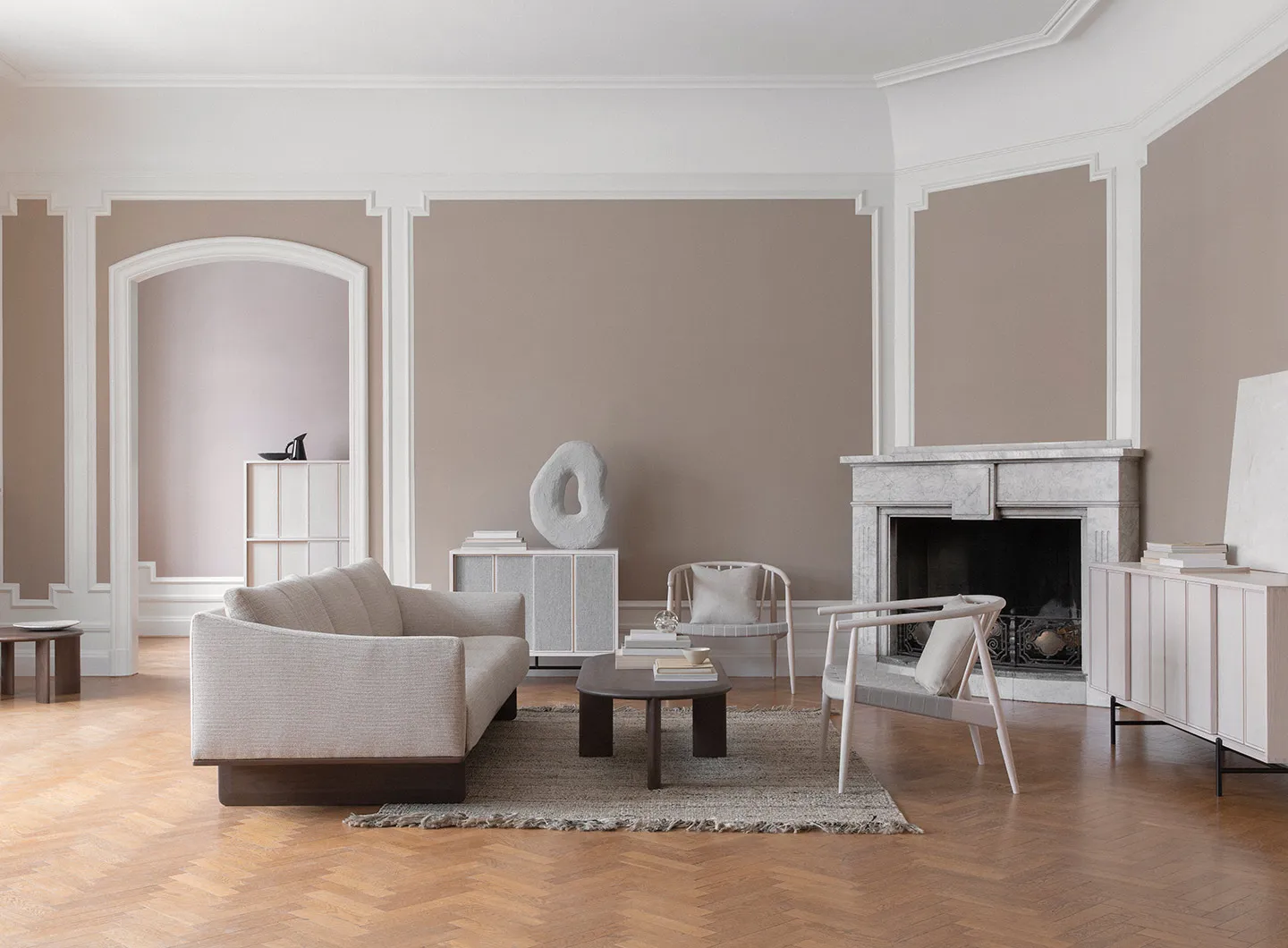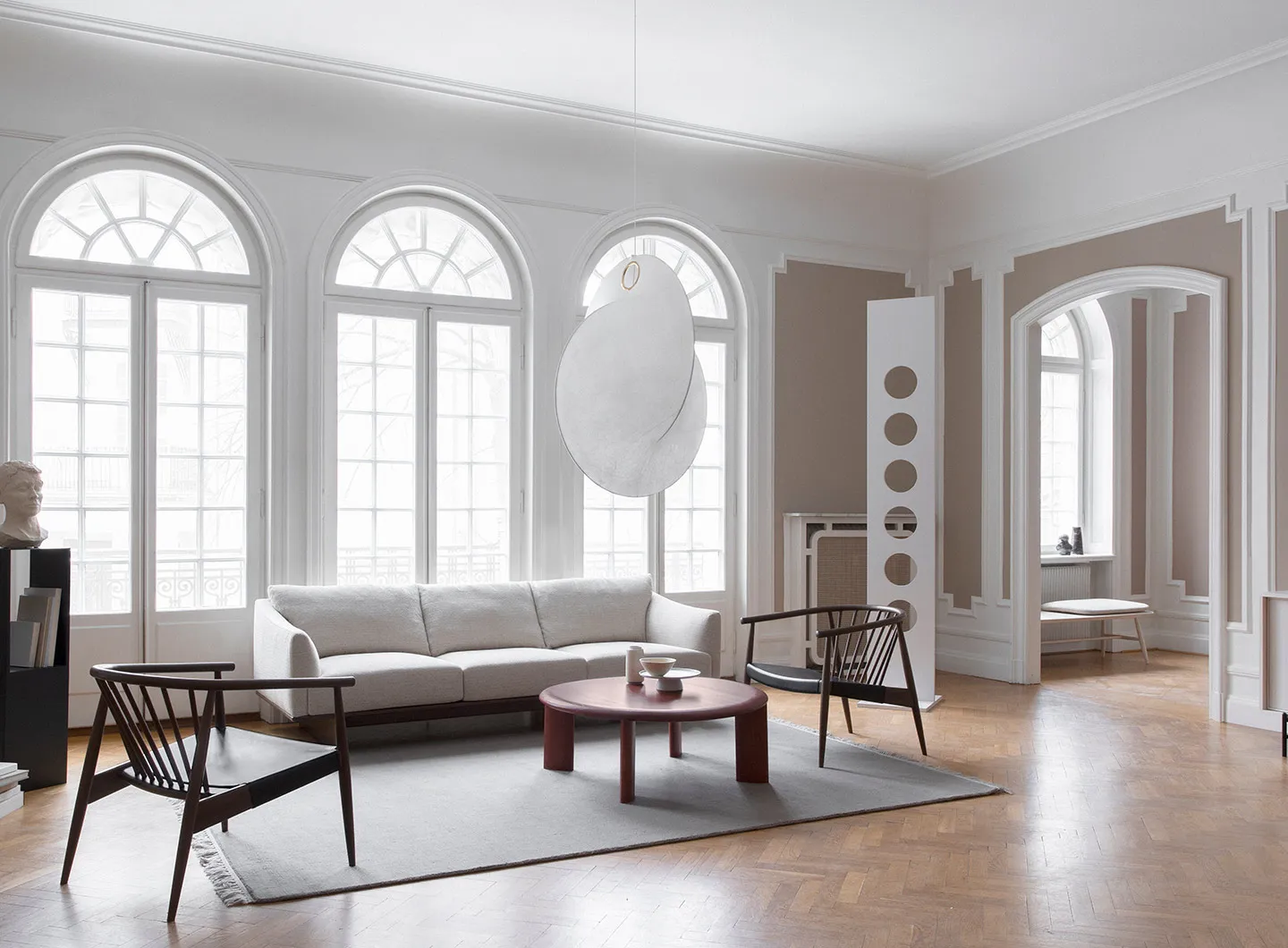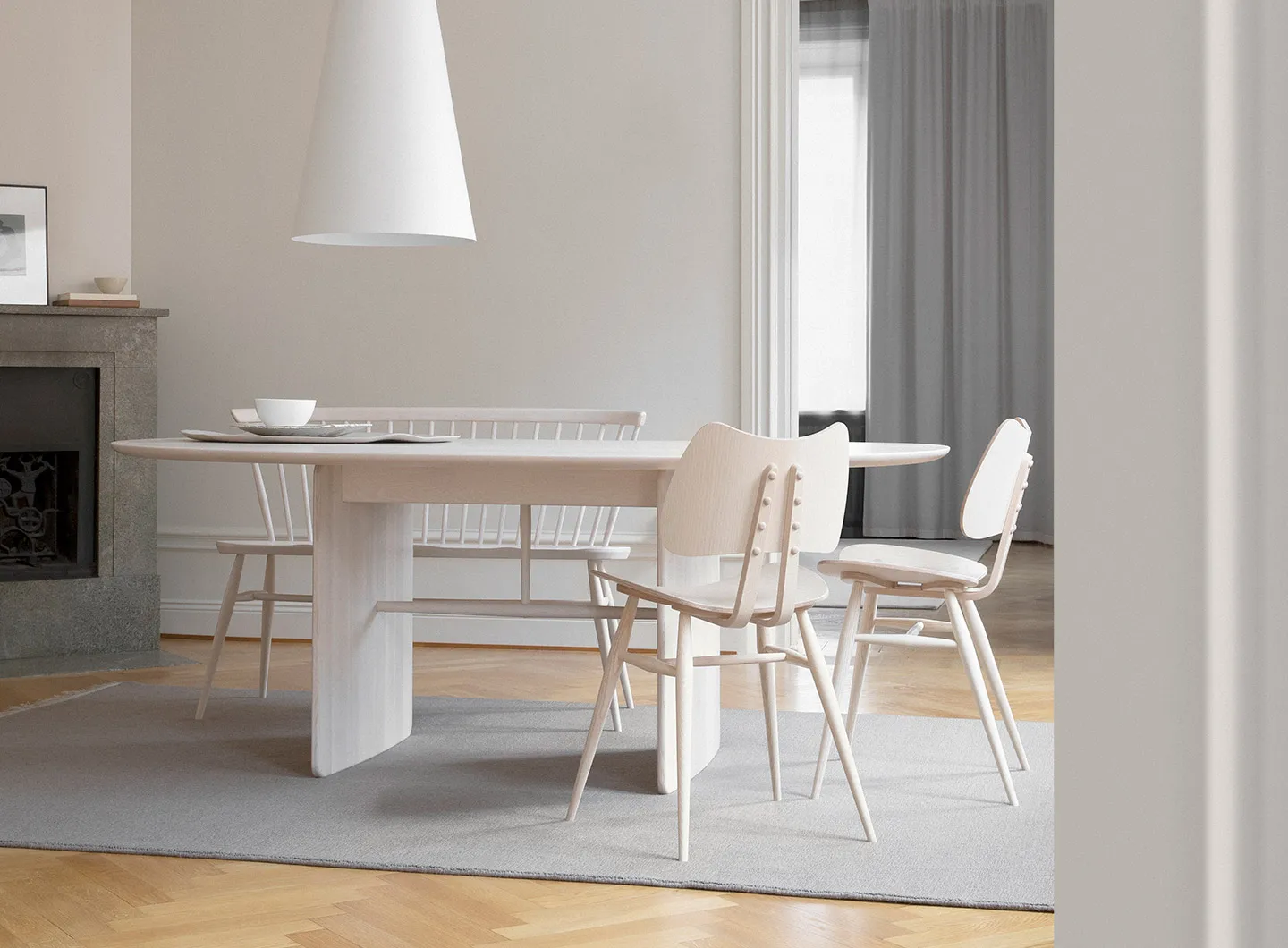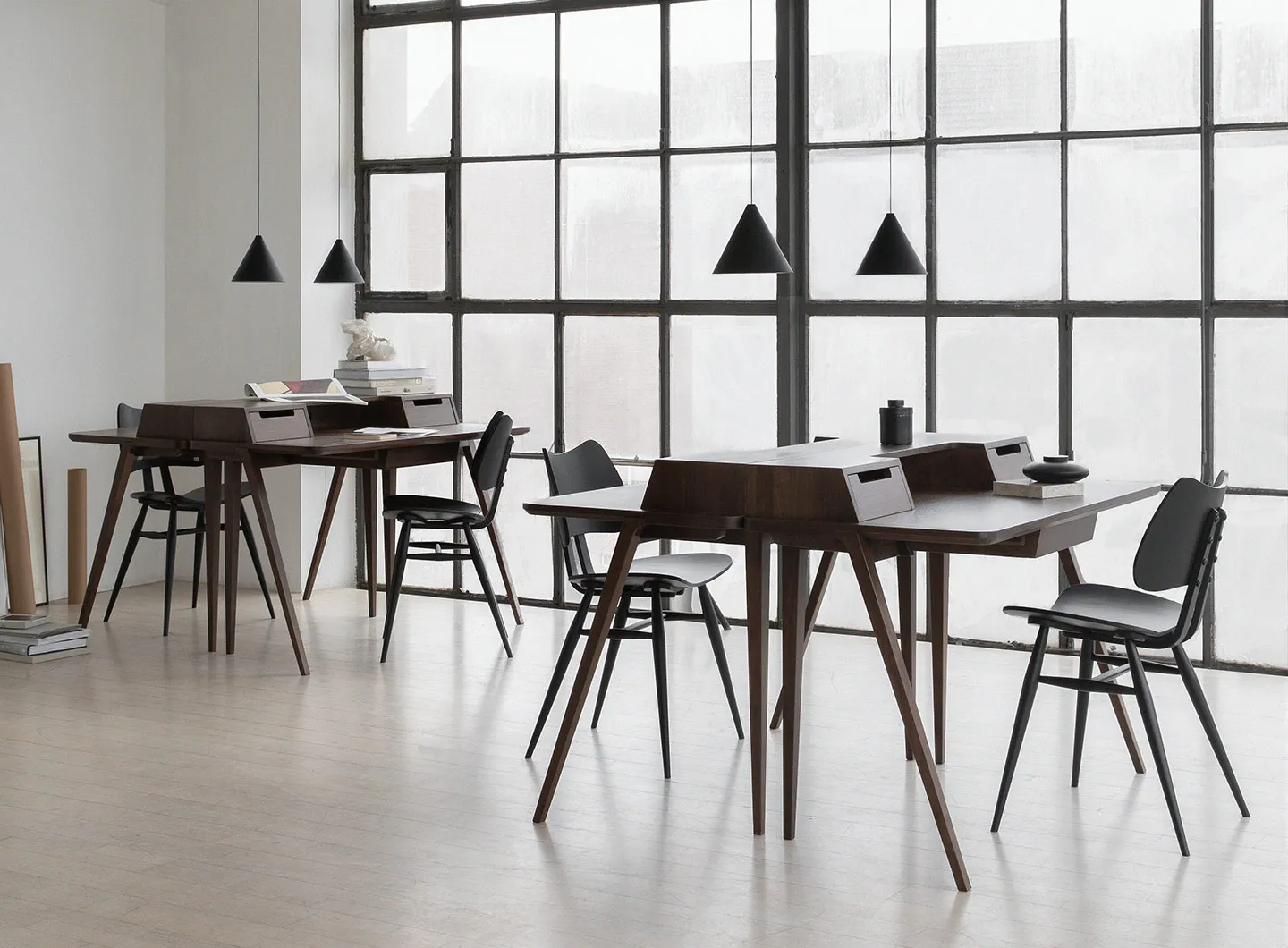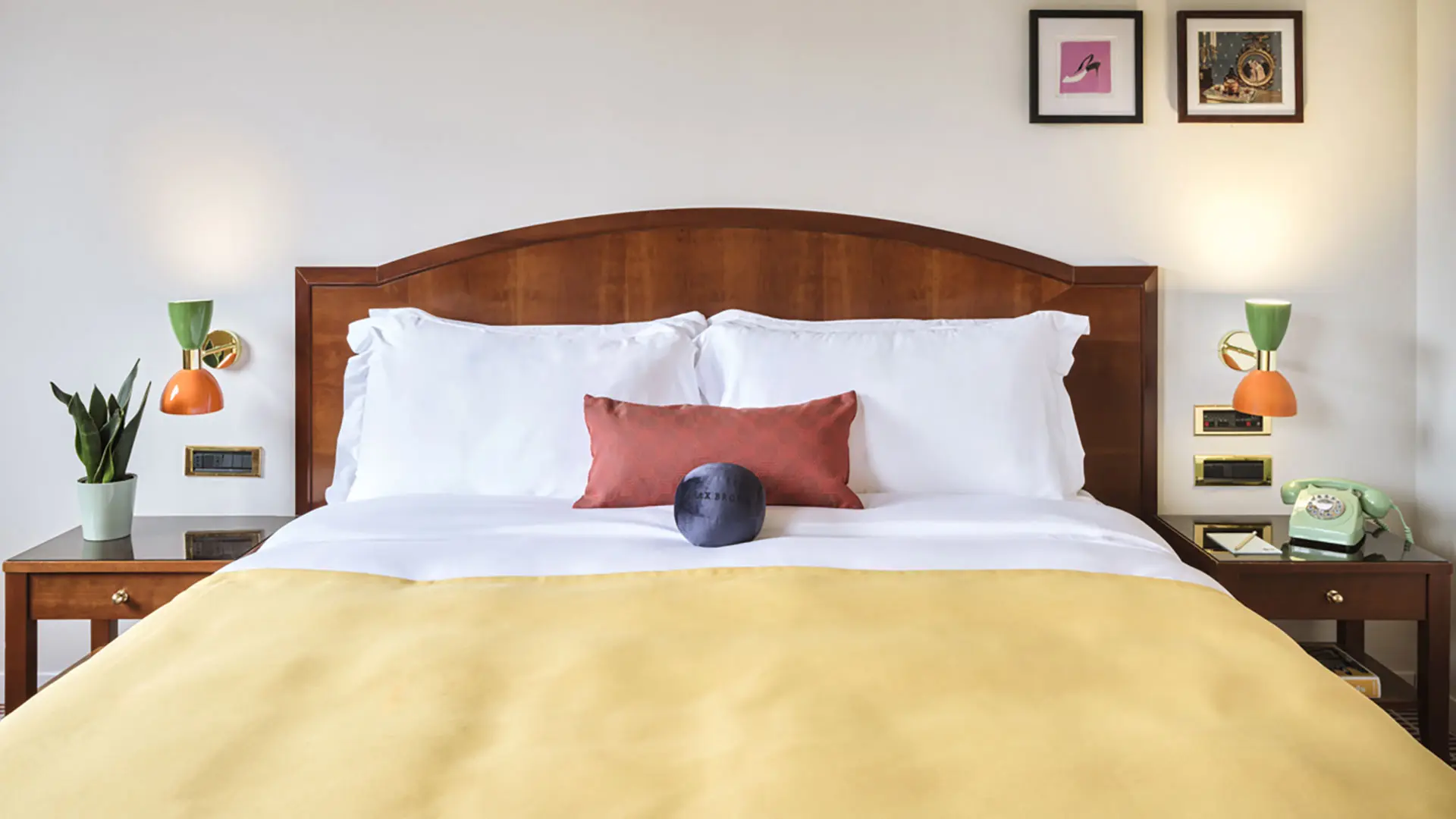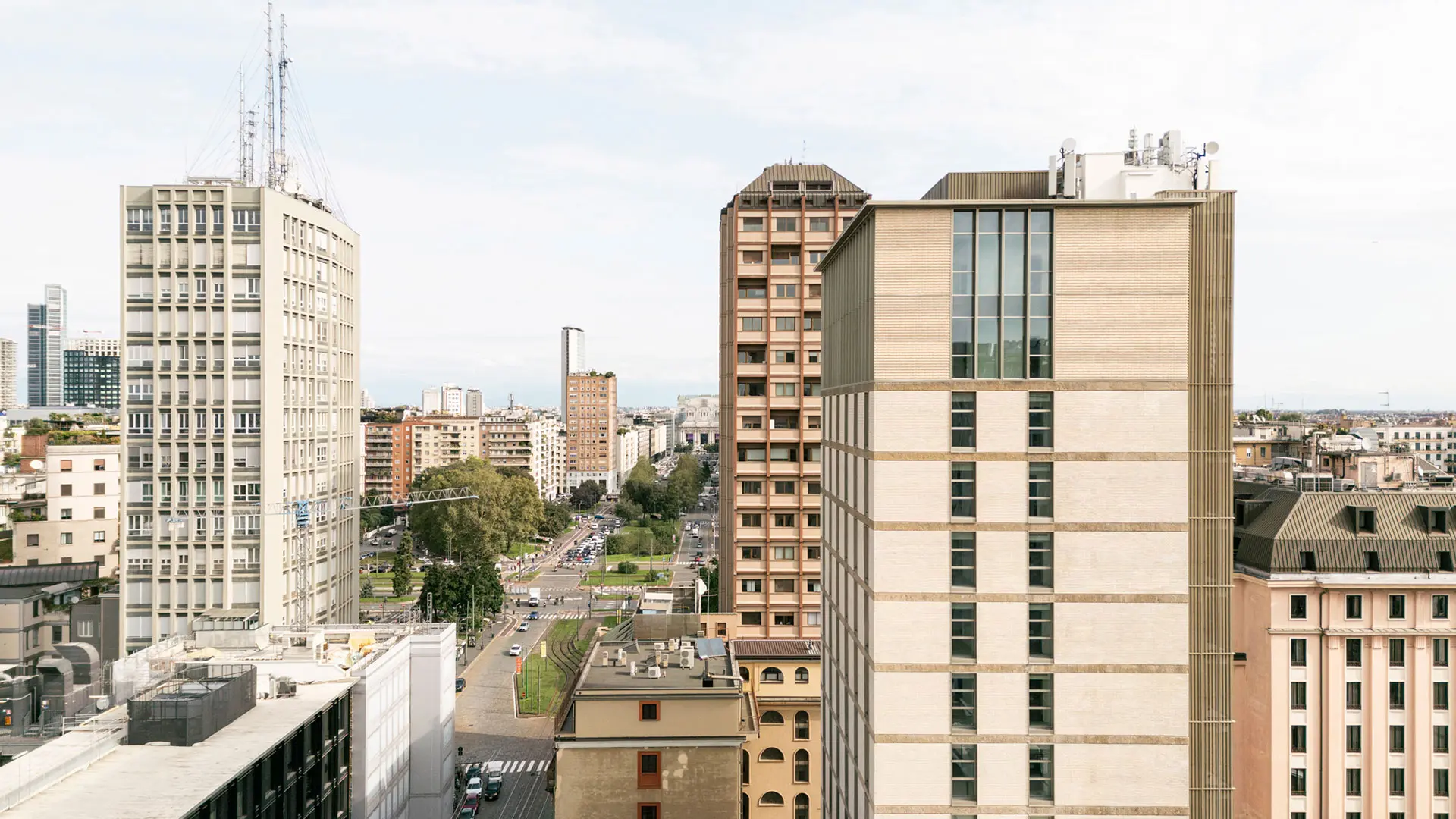In partnership with MiCodmc, a selection of establishments ripe for discovery during the 63rd edition of the Salone del Mobile.Milano, from 8th to 13th April
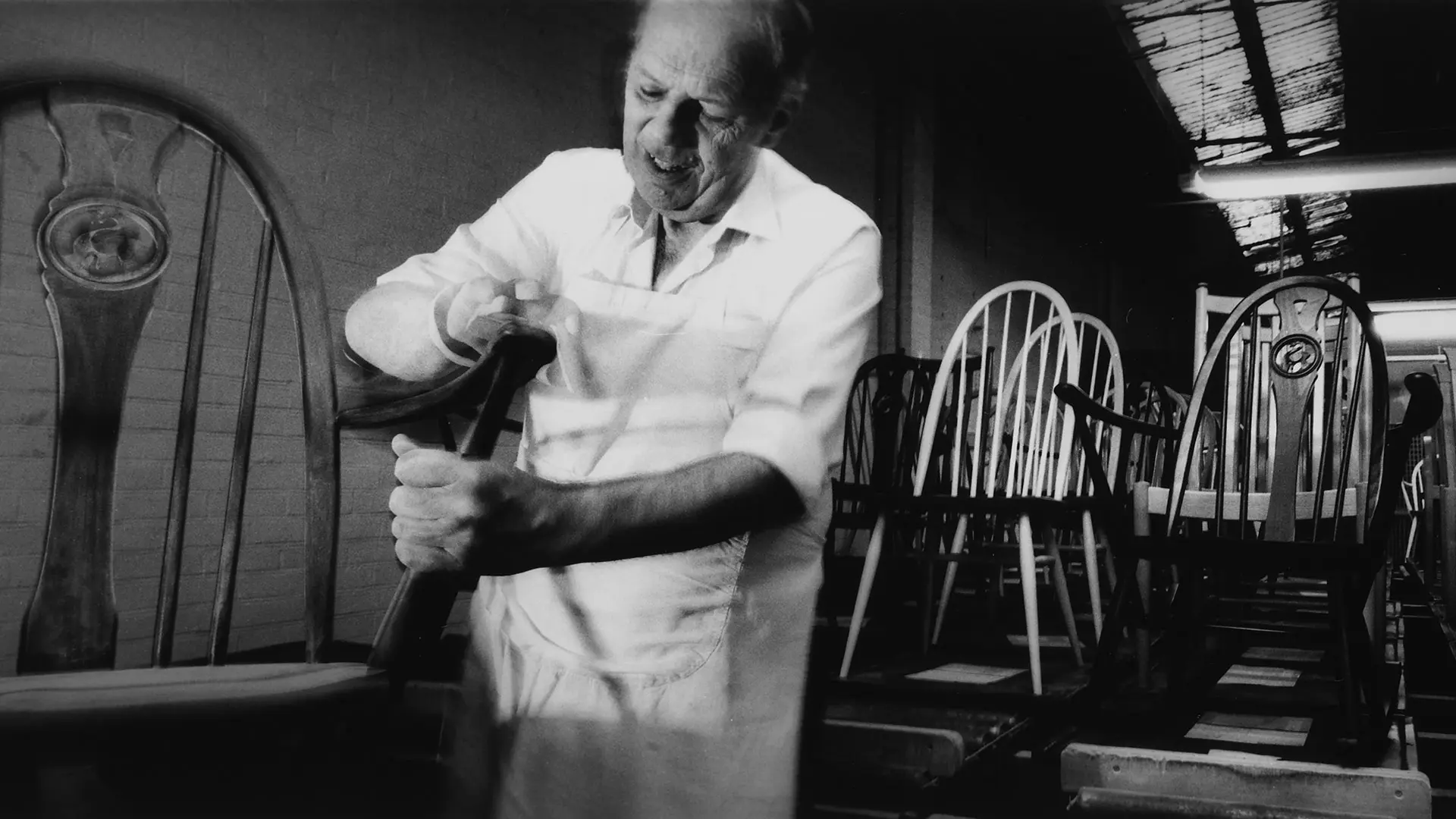
Chair shop
A hundred-year-old company that has made craftsmanship and the value of human capital its byword, and solid wood its mouthpiece.
What is the greatest gift a company can give itself for its hundredth anniversary? To give itself another company, hoping that it will live for another century. Accordingly, this year, Ercol, founded in 1920, has created L. Ercolani, a brand of which even the name is a well-deserved homage to its founder, and which encompasses the company’s heritage and turns it into an asset for the future.
Ercol was created by a young Italian, Lucian R. Ercolani, born in 1888, who moved with his family to London from the Italian Marches at the age of 10. There, encouraged by his father, a professional framer, he studied drawing, design, and the theory and furniture construction at the Shoreditch Technical Institute. He made his first piece, a music cabinet inlaid with mother of pearl in 1907, which was eventually tracked down and is now “held” by the company. Between 1910 and 1920, Lucian R. Ercolani worked for what was to become the Parker Knoll Company as well as for Gommes, later G-Plan. He set up his own company, which was instantly marked out by the quality of its products, at the age of 32.
In 1944 he was asked by the Board of Trade Utility Furniture commission to make a hundred thousand Windsor chairs (a model characterised by legs and backrest that slot into a wooden seat, Ed.). The commission was set up by the British government in 1942 to regulate the production of utility furniture, optimising the use of high quality materials for civilian rather than for war use, allowing the company its first opportunity to experiment with mass production. Initially inspired by British classic style, Ercolani discovered a whole new world – encapsulated by the simple, essential Shaker furniture - on a trip to America. It was love at first sight! This rigour was to set the tone for his products over the years.
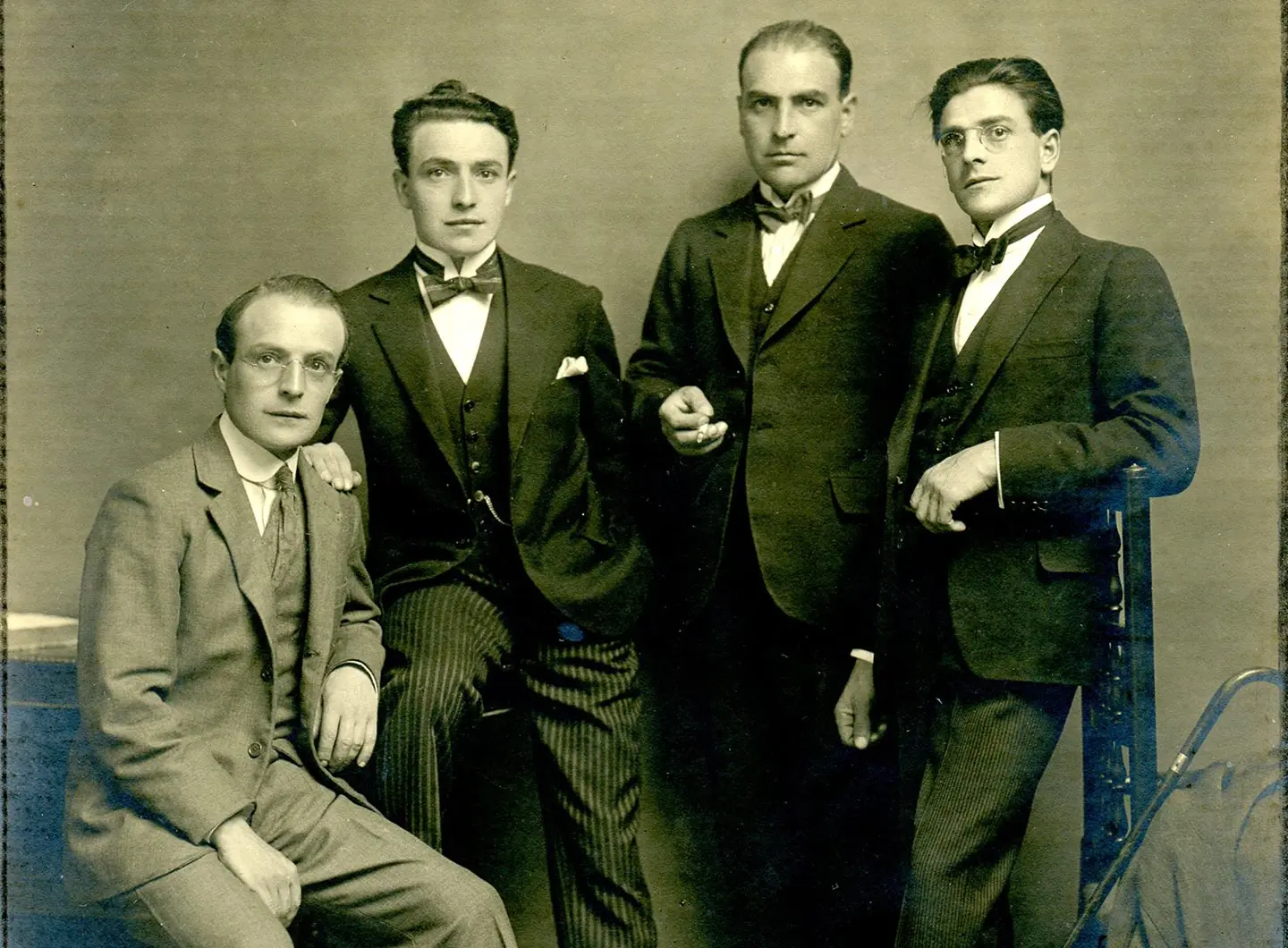
Lucian Ercolani e i fratelli
A true connoisseur of the value of top notch craftsmanship, as well as the power of those passionate about and dedicated to their own work, the “Old Man,” as Lucian Ercolani was affectionately known, always incorporated these traits into his own work, characterising the manufacturing and the name of the company – which has always been in family ownership – over this century of activity. For many years, the products produced by the company bore his signature, particularly the Windsor furniture range, which remained one of its best-sellers for over fifty years.
Some of his iconic pieces were re-edited in conjunction with the fashion designer Margaret Howell in 2002, to make up the Originals collection, which was awarded the Design Guild Mark in 2010 by the Worshipful Company of Furniture Makers, a sectoral association that Ercolani had helped promote and found in 1951. These pieces marked a significant departure from the heavy lines and decorated surfaces of the pre-War period, favouring clean lines and linear surfaces, harbingers of contemporary looks. Like the Windsor Chair, a revisiting of the typical British chair informed by centuries of artisan knowledge, the Loveseat, designed to seat a couple, draws on both the Butterfly and the Stacking Chair – Martin Camper used 120 of these in various colours for his Chair Arch in the courtyard of the Victoria & Albert Museum for the 2009 London Design Festival. Then there are the ash Plank table and Evergreen chair, the latter distinguished by its steam-bent backrest, both of which have been in constant production since the Fifties, as has the Studio Couch, a sofa bed for a “short” pause, as Bruno Munari would have said, and revisited in 2009.
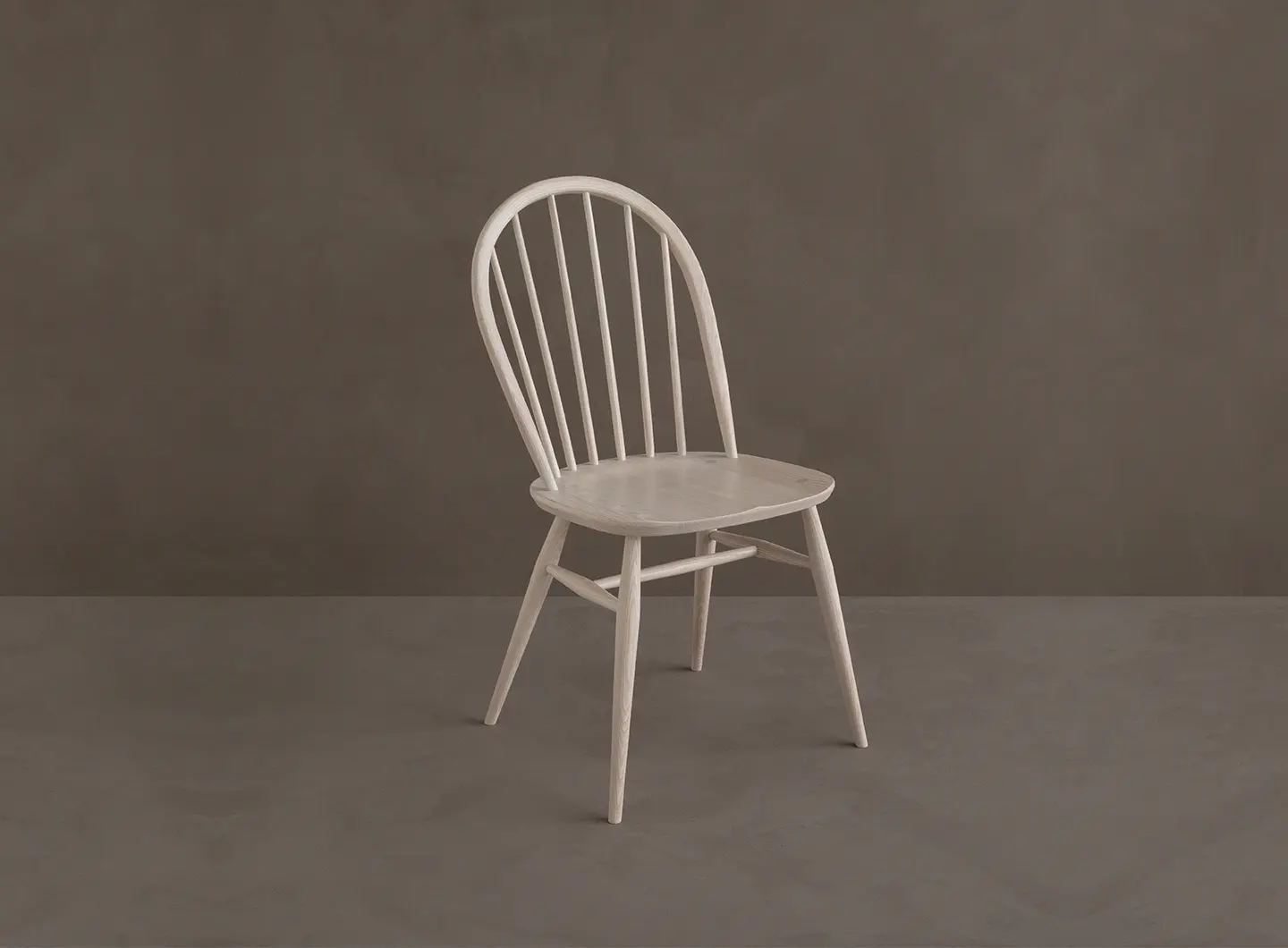
1875 Sedia Windsor
Ercol’s product catalogue contains furniture made of ash, elm, beech, oak and walnut wood, all rigorously selected and conforming to the European Union Timber Regulation. They are extremely high quality woods that withstand the test of time. The environment plays a fundamental role in company policy, which is to take a deliberately ecological approach to conceiving objects, especially those with open frames, which can be re-covered with new fabric. A customer service, ReCover, was set up in 1979 and is easily found on the company’s website.
Another present followed hard on the heels of the company’s first anniversary gift, smaller yet extremely meaningful: a new logo which revisits the original one, with the addition of the two dates bookending the centenary. The logo has been and will be used on every single piece created in 2020 and, obviously, on the iconic symbol of this anniversary, the Windsor 467 Anniversary Cabinet, a reissue of the one designed by Ercolani himself in 1962. Like the entire collection, it is a piece that transcends every style. The epitome of evergreen.
Ercol is a company that has always invested in itself, and in 2002 moved its 16,000 square metres from High Wycombe to Princes Risborough, in the Chilterns, the heart of the English furniture district, also in Buckinghamshire – and into a building especially designed by Horden Cherry Lee, an architect who has won numerous architectural and environmental sustainability awards. Large windows maximise the use of natural light; movement sensors control the office lighting, keeping down energy consumption; while soundproofing keeps external noise to a minimum. The factory and offices are also heated by a biomass system, which runs on wood waste and sawdust. The company pays great attention to the environment and to its human capital – many of the 650 employees who have worked there for years have spent their entire careers there. The inscription on the commemorative plate commissioned by Lucian Ercolani in 1951 in honour of the first 33 employees to have worked there for 21 years, reads “Without loyalty no human enterprise can succeed.” The website carries a Modern Slavery Statement.
As noted earlier, the new L. Ercolani brand flanks the classic collection of furniture designed by Lucian Ercolani himself with new collections by international designers and architects, who carry forward the “well-made” tradition. The stable includes the Swedish designer Jonas Wagell with his collection of Grade sofas, the Norwegian designer Lars Beller Fjetland with his Io range of occasional tables, the Japanese designer Tomoko Azumi with her Flow Chair, the British designer Matthew Hilton with his Treviso desk, the Icelandic designer Hlynur V. Atlason with his Von chair collection, the Danish studio Norm Architects, with its Canvas containers and Reprise chairs, channelling a Fifties Danish spirit.
Ercol’s is a lengthy story, that of a totally British company set up by an Italian who, when he first arrived as a child in London had such difficulties with this new language that his parents took him out of his Salvation Army-run school and sent him to work as a messenger boy. It was in the course of his wanderings from one part of the city to another that he spotted the poster that was to change his life, advertising the furniture design course at the Shoreditch Technical Institute. From then on, it was all just one big adventure.


 Stories
Stories
